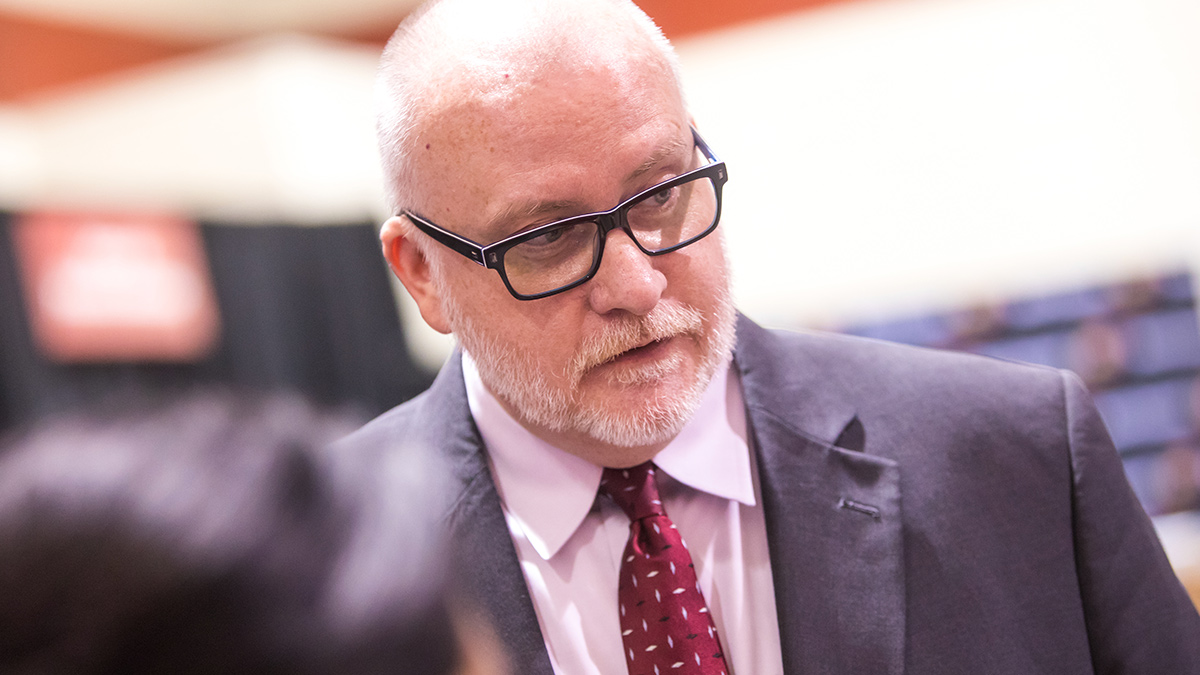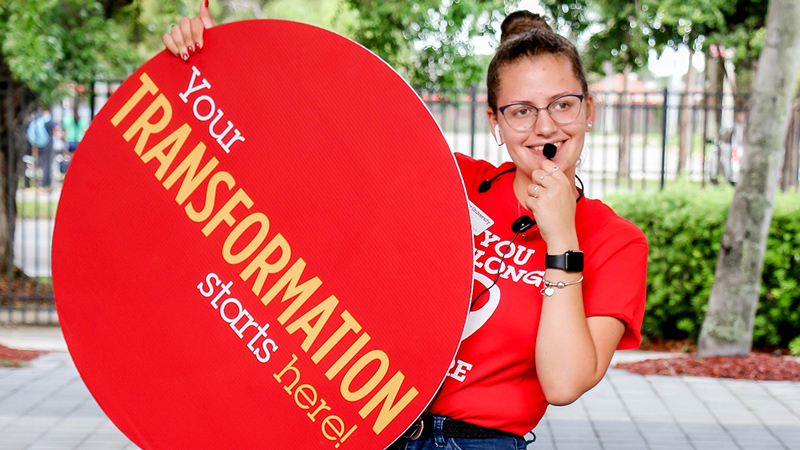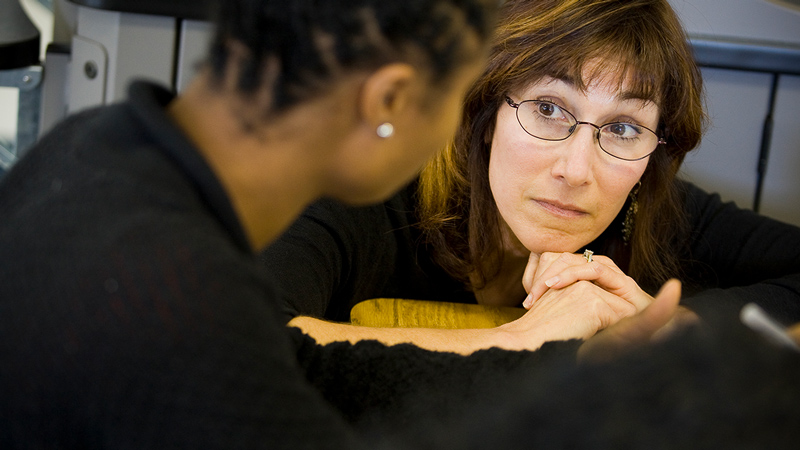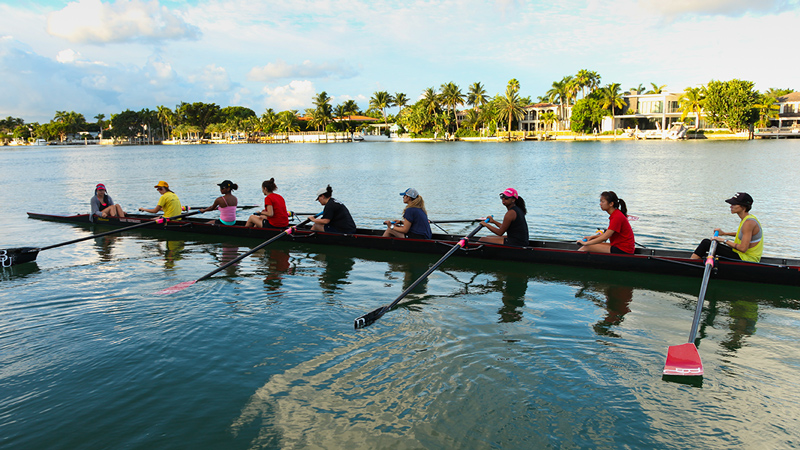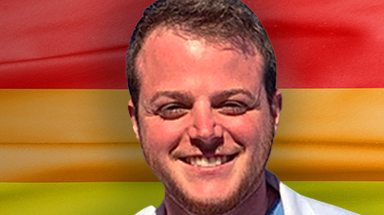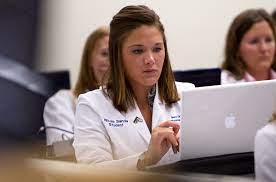1997:
The PAP was founded and admitted its first students in 1997. It was fully accredited and graduated its first class in 1999. In 2000 and 2001, 100% of graduates passed the PANCE on their first attempt.
1999:
Dr. Richard Fien started as adjunct faculty in 1999 and became full-time faculty and eventually Medical Director. He is the longest-serving faculty member and has advised students and faculty for over two decades.
2001:
The Physician Assistant Program was awarded a three–year grant of $439,917 by the Department of Health and Human Services Health Resources and Services Administration Bureau of Health Professions. The Barry University Primary Care PA Training Project focused on the development of a Cultural Competency Curriculum and improved computer and online capability of the program. The major focus was delivery of primary care to rural, medically underserved and disadvantaged communities. The grant received supplementation in 2003.
2002:
The Accreditation Review Commission on Education for the Physician Assistant renewed Program accreditation for five years.
2004:
The Program received another grant over $475,000 for its third three–year grant from the Department of Health and Human Services Health Resources and Services Administration, Bureau of Health Professions to support distance education. In 2005 the expansion began at the University Partnership Center at St. Petersburg College in St. Petersburg, Florida. Students began attending first-year didactic lectures delivered simultaneously between St. Petersburg and Miami Shores.
Although Hurricane Wilma caused the Miami Shores offices to reside in temporary headquarters, operations continued uninterrupted. The Second–year students enrolled in the expansion program at St. Petersburg, Florida began their first rotations on Florida’s west coast.
2007:
The Accreditation Review Commission on Education for the Physician Assistant renewed Program accreditation for two years. The department housing the Program broke ground on a new facility in Miami Shores, the Center for Community Health and Minority Medicine. The new building became the classrooms, offices, and labs for the program for the next ten years.
2010:
Dr. Culver, the first PAP faculty member retired after a respectable academic career that included national acclaim in the field of ethics. The U.S. Department of Health and Human Services, Office of Health Resources and Services Administration (HRSA) awarded Barry University's Physician Assistant program $1.5 million in grants to address primary health care shortages in the United States Virgin Islands (USVI). This facilitated an expansion to the USVI.
2011:
Students on the island of St. Croix started attending classes there through the same interactive videoconferencing that serves the St. Petersburg campus. The Barry PAP maintained classrooms, faculty, and staff to graduate 24 students on the island every year for several years. Many graduates and even faculty have stayed on the islands to extend valuable healthcare to the people of St. Croix.
The St. Croix PA Program faculty successfully advocated for the passage of new legislation governing PA practice in the U. S. Virgin Islands. PA Program faculty testified effectively in support of the proposed law before the legislature of the Virgin Islands.
2016:
The Accreditation Review Commission on Education for the Physician Assistant renewed Program accreditation for ten years.
2017:
Terrible hurricanes threatened the Western Caribbean. Barry University chartered a plane to retrieve all PA Program students, faculty, staff, all their families, and pets before the second hurricane made a direct hit on the island and destroyed the classrooms and labs. St. Croix campus students were absorbed into the Miami Shores campus. ARC-PA accepted the change in class size to 76 for the Miami Shores campus. The St. Croix facilities could not be rebuilt. The PA Program maintains close ties to the clinical affiliates on the island; students still attend clinical rotations there, extending much-needed healthcare to the people of St. Croix and surrounding islands.
The PA Program transitioned into the College of Nursing and Health Sciences, now called the College of Health Professions & Medical Sciences. The PA Program benefited from the change in departments in many ways. For instance, a strong Dean has advocated leveraging synergies for students in varied programs to facilitate participation in Interprofessional Education exercises. The PA Program has flourished in the new department, sharing new simulation and Physical Diagnosis Lab spaces with students in similar healthcare programs.
2018:
The PA Program welcomed its third Program Director, Dr. Randi Cooperman. Having been an Associate Professor and Director of Clinical Education, she has brought leadership, organization, and stability.
2020:
The PA Program led the way to flexing to distance education during the pandemic. The didactic year students were seamlessly transitioned to remote education in three days, with no interruption of teaching and learning. The clinical year students experienced a brief interruption of clinical practice experiences, during which time the clinical faculty provided interactive supplemental clinical learning experiences. The Program also re-sequenced some Advanced Didactic semester courses so that the Class of 2020 graduated on time, as have subsequent cohorts. The Program has since transitioned back to in-person labs and lectures, remaining an in-person Program. Barry University provided the whole University with comprehensive support including education, vaccination, testing, tracing, and Flex-learning Professional Learning Communities for faculty. Two PA program faculty were leaders for other University faculty learning to use online resources to provide synchronous distance education during social distancing.
The Primary Care Board Review Conference moved to virtual format, allowing graduates and other more remote attendees to attend the CME activity and prepare for recertification.
2022:
The Miami Shores campus completed a move to new classrooms with interactive videoconferencing, offices, and a new Physical Diagnosis Lab.


